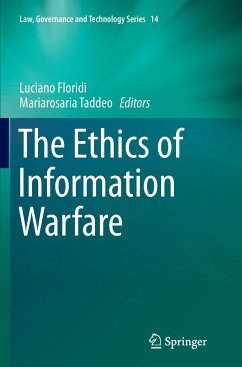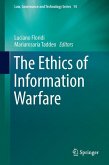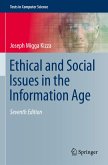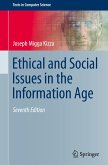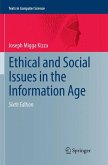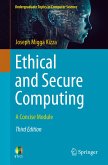This book offers an overview of the ethical problems posed by Information Warfare, and of the different approaches and methods used to solve them, in order to provide the reader with a better grasp of the ethical conundrums posed by this new form of warfare.
The volume is divided into three parts, each comprising four chapters. The first part focuses on issues pertaining to the concept of Information Warfare and the clarifications that need to be made in order to address its ethical implications. The second part collects contributions focusing on Just War Theory and its application to the case of Information Warfare. The third part adopts alternative approaches to Just War Theory for analysing the ethical implications of this phenomenon. Finally, an afterword by Neelie Kroes - Vice President of the European Commission and European Digital Agenda Commissioner - concludes the volume. Her contribution describes the interests and commitments of the European Digital Agenda with respect to research for the development and deployment of robots in various circumstances, including warfare.
The volume is divided into three parts, each comprising four chapters. The first part focuses on issues pertaining to the concept of Information Warfare and the clarifications that need to be made in order to address its ethical implications. The second part collects contributions focusing on Just War Theory and its application to the case of Information Warfare. The third part adopts alternative approaches to Just War Theory for analysing the ethical implications of this phenomenon. Finally, an afterword by Neelie Kroes - Vice President of the European Commission and European Digital Agenda Commissioner - concludes the volume. Her contribution describes the interests and commitments of the European Digital Agenda with respect to research for the development and deployment of robots in various circumstances, including warfare.
From the book reviews:
"This compilation reviews the distinctive issues associated with informational warfare-war waged through new information and communications technologies (ICTs). ICTs are used to improve the strategies of conventional war by aiding intelligence gathering, coordinating weapons and troops, and disseminating wartime propaganda. ... Summing Up: Recommended. Upper-division undergraduates through researchers/faculty." (D. Hurst, Choice, Vol. 52 (5), January, 2015)
"This compilation reviews the distinctive issues associated with informational warfare-war waged through new information and communications technologies (ICTs). ICTs are used to improve the strategies of conventional war by aiding intelligence gathering, coordinating weapons and troops, and disseminating wartime propaganda. ... Summing Up: Recommended. Upper-division undergraduates through researchers/faculty." (D. Hurst, Choice, Vol. 52 (5), January, 2015)

